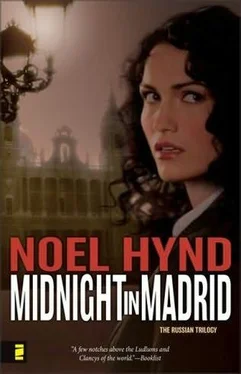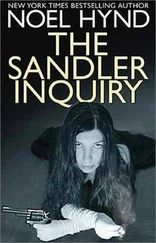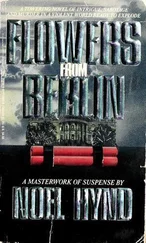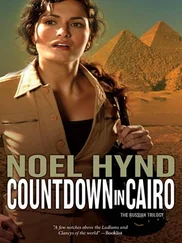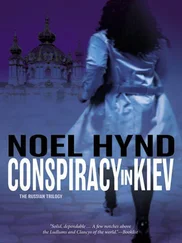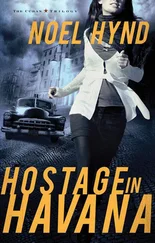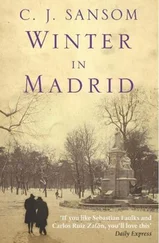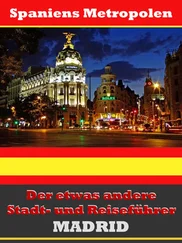Noel Hynd - Midnight in Madrid
Здесь есть возможность читать онлайн «Noel Hynd - Midnight in Madrid» весь текст электронной книги совершенно бесплатно (целиком полную версию без сокращений). В некоторых случаях можно слушать аудио, скачать через торрент в формате fb2 и присутствует краткое содержание. Жанр: Политический детектив, на английском языке. Описание произведения, (предисловие) а так же отзывы посетителей доступны на портале библиотеки ЛибКат.
- Название:Midnight in Madrid
- Автор:
- Жанр:
- Год:неизвестен
- ISBN:нет данных
- Рейтинг книги:3 / 5. Голосов: 1
-
Избранное:Добавить в избранное
- Отзывы:
-
Ваша оценка:
- 60
- 1
- 2
- 3
- 4
- 5
Midnight in Madrid: краткое содержание, описание и аннотация
Предлагаем к чтению аннотацию, описание, краткое содержание или предисловие (зависит от того, что написал сам автор книги «Midnight in Madrid»). Если вы не нашли необходимую информацию о книге — напишите в комментариях, мы постараемся отыскать её.
Midnight in Madrid — читать онлайн бесплатно полную книгу (весь текст) целиком
Ниже представлен текст книги, разбитый по страницам. Система сохранения места последней прочитанной страницы, позволяет с удобством читать онлайн бесплатно книгу «Midnight in Madrid», без необходимости каждый раз заново искать на чём Вы остановились. Поставьте закладку, и сможете в любой момент перейти на страницу, на которой закончили чтение.
Интервал:
Закладка:
Jean-Claude sat quietly with the attache case now across his lap.
“So?” Habib said eventually. “We are here to conduct business?”
“We are,” Jean-Claude answered. “But time matters to me. So we should proceed.”
Jean-Claude placed the attache case on the table. Habib eyed it warily, its latches facing him.
“If you wouldn’t mind, perhaps you could open it,” Habib suggested.
Jean-Claude gave a little snort of amusement. “Of course,” he said.
Jean-Claude unlatched it with two loud clicks. Then he turned it back toward Habib.
Habib’s eyes widened. Within the case were several bricks of cash, mostly euros but a significant concentration of American dollars as well, fifties and hundreds, bound together with rubber bands. There were some smaller packets of Swiss francs.
“Count it,” said Jean-Claude.
“With pleasure, I shall.”
Habib flicked quickly through the money, calculating as he counted, coming out with a sum equivalent to almost sixty thousand American dollars.
Finally, Habib smiled. “Very well. Very close to the proper amount, giving consideration to the current rates of exchange. So you have made yourself a purchase,” he said. “It is an honor. But…,” he said, raising his gray eyebrows in exaggerated surprise, “something perplexes me. May I inquire upon a point?”
Jean-Claude fixed him with a chilly glare, then nodded.
“A few short weeks ago,” Habib posed, “when we negotiated a price, you stated that you had acquired a piece of art that you were engaged in selling. And yet the price I demanded was considerably higher than what you stood to receive upon that sale. We had quite an argument, if I recall. Yet you arrive here today on an afternoon’s notice with everything that I asked for. That suggests that other funds have come from other sources, which further suggests the involvement of others beyond our immediate circle. As you might imagine, that alarms me.”
Jean-Claude’s tone was flat. “It shouldn’t,” he said.
Jean-Claude had made his living acquiring coveted property, then selling it. But it had often occurred to him that one could make even more money by selling the same item more than once. One particular purchaser from the Orient had paid in full for the artwork but then met with a terrible accident before he could take possession of the object in question. Jean-Claude, of course, mourned the man’s ill fortune but was able to secure a second bid very quickly from an Italian businessman. The latter gentleman delivered a fifty percent down payment.
It’s too bad, Jean-Claude mused, that he would also not be able to sell the item a third time. But sometimes a dealer had no choice except to complete a transaction.
“My first buyer met an unfortunate end. After payment was made. I have since found a second buyer. Now, where is our cargo?”
“Not far from here.”
“We can retrieve it now?”
Habib opened his hands in an expansive gesture. “Of course,” he said. “We will go for a short drive. As soon as I lock up the money.”
“Have it your own way,” Jean-Claude said. “Do you also wish to have your own bodyguards come with us now?”
Habib shrugged and laughed. “And why should I, my friend? You come here through an honest and devout contact in Madrid. You have paid in cash for the merchandise you want. You appear to be pious and a man of honor.” Habib also gave a pat to his midsection to indicate that he was carrying a pistol. “And I have taken some small precautions. Aside from that, what can I do? My enemies are not you, my brothers in Islam, but rather the Americans, the Zionists, and the Christian fascists here in Italy. Some day, I know, they will come and kill me, but, inch’ Allah, not tonight.”
“Understood,” said Jean-Claude with a slight nod.
“You will then excuse me for one minute?” Habib asked.
Jean-Claude’s gunmen stepped aside to allow Habib to go to the door and leave the room. Habib left the door open. Jean-Claude listened to the sound of his footsteps and the direction the older man walked with the attache case. The men in the room exchanged glances but said nothing.
Less than three minutes later, Habib returned.
“Very well,” Habib announced to the room. “Your merchandise is at a farmhouse nearby. I have a van, my friends,” Habib said. “We can all go together or you can follow if you wish to use your own vehicle.”
“For safety’s sake, we will use our own vehicle,” Jean-Claude said.
“Then let us complete our business.”
THREE
Five minutes later, Habib was on the road that exited Naples to the south. Ten minutes later, he was outside the city limits, driving steadily through the night, one eye on the road, one eye on his rearview mirror. His van was small, old, and drafty. It rattled. From a tape player bolted to the dashboard, Arabic music whined softly, a stream of ballads by Kazeem Al-Saher, the Iraqi pop icon who now made megahits in Lebanon.
In the follow-up car, which bore French plates, one of Jean-Claude’s guards drove while Jean-Claude rode shotgun. The third man was in the backseat.
Both cars moved quickly. The night was cloudy, but there were stars. The drive took another quarter of an hour on main arteries and then Habib led the way onto a side road. Next he accessed a smaller one. They went through farmland; vineyards, it looked like to Jean-Claude. Then they were on a long driveway in an area that was surprisingly rural. Finally, Habib’s van rolled to a halt, and the following car came to a standstill a few meters behind it.
The travelers all stepped out in unison. There was only one building, a small barn. There was a pasture nearby. Jean-Claude surveyed it carefully as his eyes adjusted, looking for danger. But from the pasture the only movement or sound was from sheep. In the same field were several haystacks, positioned at predictable intervals and standing like tall rotund sentries in the starlight.
Habib went to the door of the barn. He fished around in a large flower pot and found a metal key, one which looked like it might have belonged to a medieval church. When he pushed it into a keyhole it turned with a loud click. He led the other three men into the barn, lit a heavy battery-powered lantern, and continued to lead the way, throwing a single bright beam before them.
The interior of the barn was half the size of a basketball court, but seemed smaller because it was cluttered. There was no livestock, only equipment and tools on a dirt floor.
“We are quite alone, my friends,” Habib said quietly. “There is a farmer who owns the site, but he is a friend. And he will not be here again till Monday.”
Jean-Claude nodded curtly.
Habib walked to the rear of the structure. Jean-Claude watched him carefully. There was an array of pitchforks and rakes, but Habib seemed to be trying to position himself. He put down his lantern and held his arms out at angles as if taking imaginary vectors. The other three men stood by quietly and watched. Habib shuffled his right foot along the floor as if he were looking for something in the layer of straw. Then he found it.
Kneeling, he pushed away some earth and revealed a metal ring on a trap door. Under this section of the barn, a small foundation had been dug into the earth, reinforced by wooden planks.
“I’m afraid I will need your help now,” Habib said gently. “I’m an old man. Fifty-two. And your cargo is quite heavy. Would you do me the honor of some assistance?”
“Of course,” said Jean-Claude.
Habib cleared away the trap door. One of Jean-Claude’s assistants, a man with a nasty scar across his left brow, stepped down into a small storage area. He cleared away an array of farm equipment and then came to a piece of old canvas.
Читать дальшеИнтервал:
Закладка:
Похожие книги на «Midnight in Madrid»
Представляем Вашему вниманию похожие книги на «Midnight in Madrid» списком для выбора. Мы отобрали схожую по названию и смыслу литературу в надежде предоставить читателям больше вариантов отыскать новые, интересные, ещё непрочитанные произведения.
Обсуждение, отзывы о книге «Midnight in Madrid» и просто собственные мнения читателей. Оставьте ваши комментарии, напишите, что Вы думаете о произведении, его смысле или главных героях. Укажите что конкретно понравилось, а что нет, и почему Вы так считаете.
